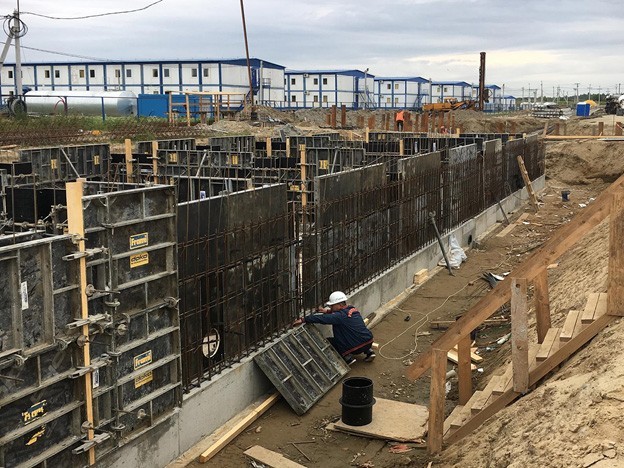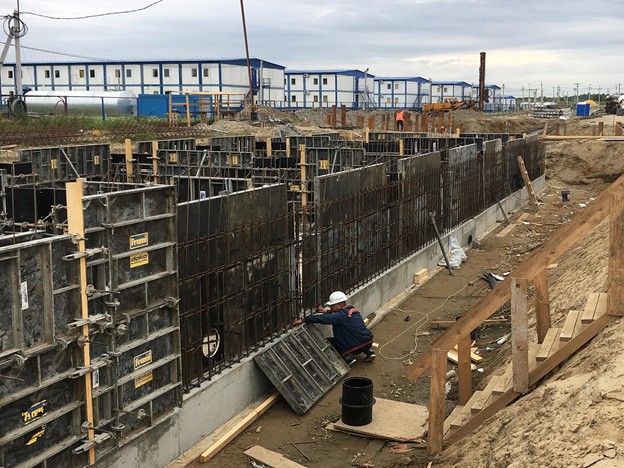The Varnitsa Salt Plant in the Russian enclave of Kaliningrad treated its concrete structures with PENETRON ADMIX to ensure crucial resistance to the extreme saline environment. The new plant began operation in December 2018.
“The construction project for a salt plant in Kaliningrad began accidentally,” says Olga Naumova, Director of Gidrostar Plus, the Penetron distributor for Kaliningrad. “For years, the underground salt caverns were used as a gas storage facility. However, during a recent expansion, a large amount of brine was discovered in the caverns. This is a normal by-product of the gas storage process, so a decision was made to build a salt plant on-site to exploit this resource.”
Producing salt by evaporating salt brine yields a very fine, textured salt, appropriate for applications requiring the highest quality. Evaporation of the brine is done by steam heat in a system that includes large evaporators, or vacuum pans, and a network of water storage tanks. The process basically pumps brine from one pan to another, increasing the salinity of the liquid with each step.
The extreme saline environment of the Varnitsa plant demanded that special attention be paid to the treatment of the concrete used to construct the tanks at the facility. If exposed to highly concentrated brine, any untreated concrete can quickly suffer severe deterioration.
Preventing Corrosion in Imbedded Steel
Chloride-induced corrosion of steel embedded in concrete is a key challenge to concrete durability. Under normal conditions, concrete protects reinforcement steel from corrosion through its highly alkaline nature. The high pH environment in concrete (usually greater than 12.5) forms a passive and noncorroding protective oxide film on the steel. However, chloride ions dissolved in water (i.e. brine) can rapidly penetrate concrete through the capillary network and destroy or penetrate the film. Once the chloride corrosion threshold is reached, the process of corrosion begins. This causes rebar to rust and expand, breaking up the surrounding concrete.
“By ensuring that concrete is waterproof, not just on the surface, but in-depth, we can prevent the main causes of deterioration from occurring,” adds Olga Naumova.
When mixed into concrete, PENETRON ADMIX generates a non-soluble crystalline formation that permanently seals the microcracks, pores and capillaries in concrete against the penetration of water and chemicals. The crystalline formation becomes an integral part of the concrete matrix and performs consistently during the life of the concrete.
Significant Increase in Durability
To prevent deterioration and maximize the durability of the concrete elements at the Varnitsa Salt Plant, the concrete basement structures and all the fire and water storage tanks were treated with PENETRON ADMIX. In addition, the resulting construction joints were sealed with PENEBAR SW waterstop strips, which expand to form a positive seal against the concrete when in contact with the brine.
“Added during batching, PENETRON ADMIX can significantly increase concrete durability and service life,” says Olga Naumova. “The treatment at Varnitsa helped make the concrete fire and water storage tanks impermeable to chloride ion penetration.”
Translations
Penetron использовали на солезаводе в г. Варница для повышенного сопротивления
Kaliningrad Planta Salina Concreto Se Utiliza Penetron Para Mayor Resistencia

Extreme saline environment: PENETRON ADMIX was used to treat the concrete basement structures and water storage tanks at the Varnitsa Salt Plant to prevent deterioration and maximize durability.




